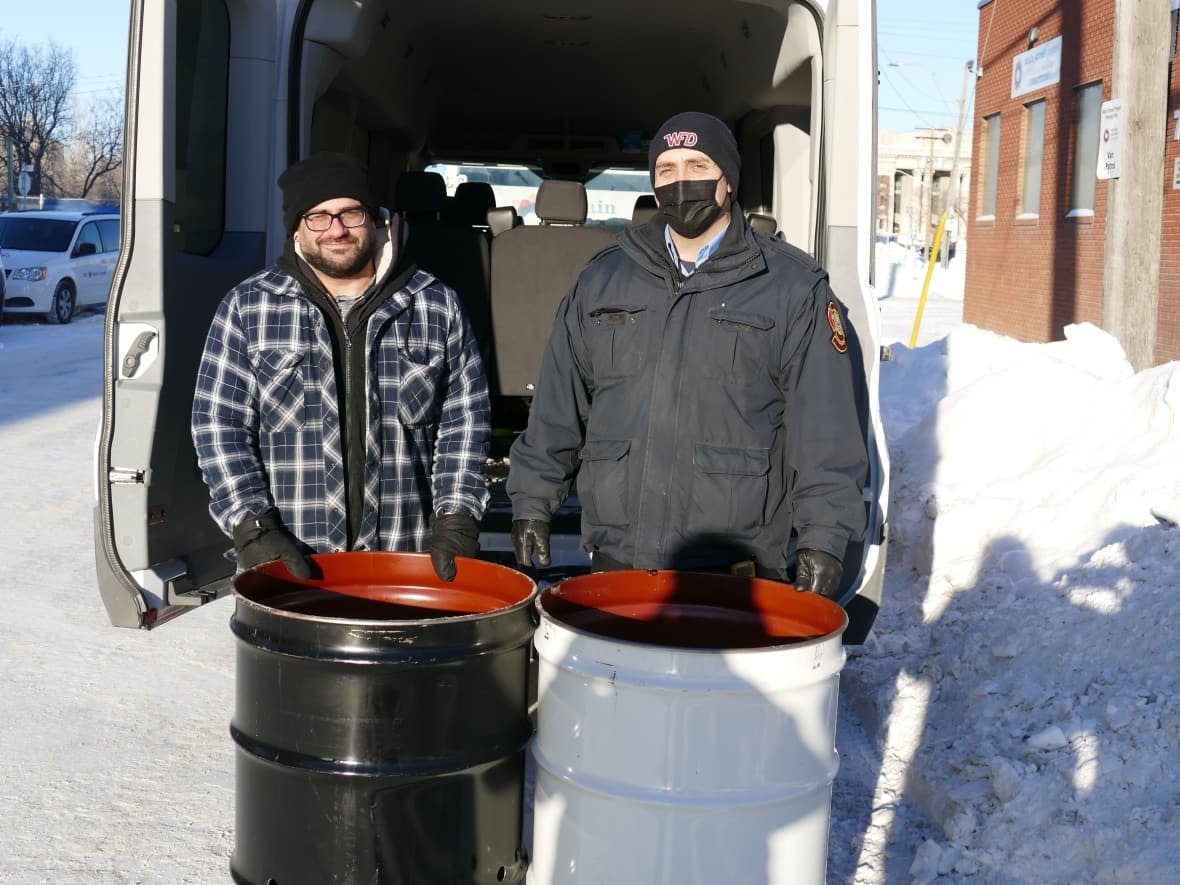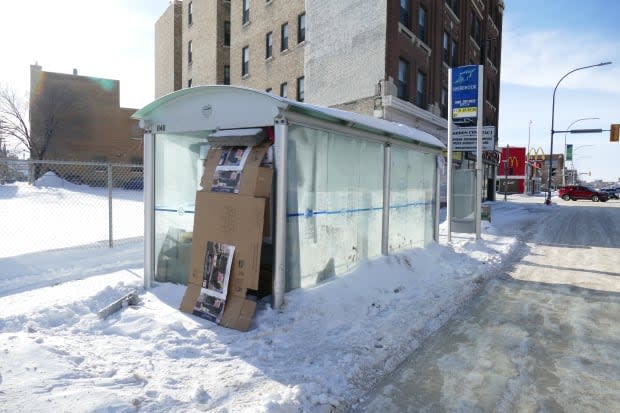Winnipeg burn barrels a positive approach to harm reduction, says Main Street Project

Burn barrels are being dropped off in Winnipeg encampments this week to help those living outside stay safe and warm.
On Tuesday, Shawn Sousa, outreach services manager with Main Street Project, and Winnipeg Fire Paramedic Service fire prevention officer Steve Antle provided information on the pilot project's launch.
Fifteen 200-litre steel barrels with holes drilled in the bottom were purchased by the fire service.
"When it gets really cold, there's not a lot of protection from the elements and some of these barrels will essentially save some people's lives, as well as reduce the amount of harm that could happen to them from regular fires," said Sousa, who has worked in social services for more than 10 years.
He said nine of the barrels were placed at more permanent encampments throughout the city as of 3:30 p.m. Tuesday.
Due to privacy concerns, he did not disclose their locations.
"We have purchased enough barrels to meet the need of all the camps," Antle said.
'It's really challenging'
But it's not as just as simple as leaving the burn barrel at an encampment.
Antle said there is a list of safety rules that homeless populations will need to abide by when using the barrels. They must be placed at least 10 feet from any structure and the only thing that can be burned in the barrels is chopped wood.
The downside for those living out in the cold is that the wood is not provided, although Antle offered the idea that a philanthropist might be able to provide wood.
There will, however, be regular inspections to ensure things like garbage and propane are not being used to generate fire inside the barrels.
In February 2021, a woman died in an explosion at an encampment along the riverbank near Higgins Avenue and Annabella Street.
"It's really challenging when people are living out in the cold and you are telling them, 'you can't have heat.' It's very challenging. We understand that," Sousa said.
"We also understand the safety precautions that it brings by having propane and having all of the open fires."
Building relationships
Sousa and Antle's team, as well as other outreach organizations, have developed relationships with members of the city's homeless population.
"I think we all know there is very little influence without relationships. So we go out and we build relationships," Antle said.
Sousa agreed.
"The folks that we are visiting are people that we visit often. We have a relationship with them. We're connected to them," he said.
Jason Whitford, chief executive officer of End Homelessness Winnipeg, sees the merit in the burn barrels.
"I see it being a resource that might be welcomed by the unsheltered population and it will definitely provide an added measure of safety to ensure that the fire is contained and that there is not hazard to life or destruction of property," he said. "The challenge might be the supply of wood."

Whitford also sees the burn barrels as a short-term solution, and not only because they will be picked up in the spring.
He believes more needs to be done to ensure more of the city's homeless population has a permanent shelter to stay in, especially during the frigid winter months.
He says all three levels of government, the private sector and the community at large need to do their part to support an increased supply of housing based on income level, housing with supports, housing with growing families or for people transitioning into the city.
Sousa also thinks there need to be long-term changes to address homelessness. But at this time, he said any work to reduce harm is good news.
"It's actually a positive thing that we're working to that point where we are realizing that we need to take a harm-reduction approach, and not be super against homelessness."
WATCH | Keeping the vulnerable safe from the cold:


